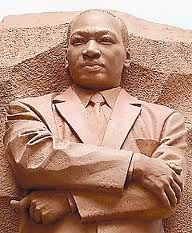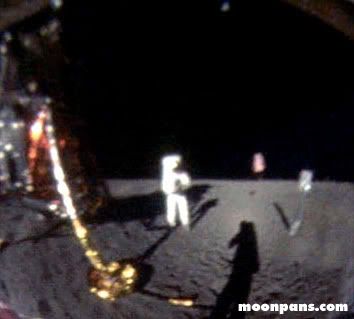In the next 4 and a half hours all the actual events of the 2012 Republican National Convention will take place including the acceptance of credentials, adoption of rules, adoption of resolutions and the platform, and the roll call for the nomination of Willard “Mitt” Romney to be the Republican Party candidate for President of the United States (and the roll call for the nomination of Paul Ryan to be the Republican Party candidate for Vice-President of the United States).
Everything else is just propaganda.
And the only bit that has least little news worthiness to it is whether the Ron Paul supporters will get any air time.
Ron Paul’s Faithful Continue To Make Noise; Floor Fight Tuesday?
by Liz Halloran, NPR
August 27, 2012 05:57 pm
Surrounded by microphones, cameras, scribbling reporters, they recounted their outrage at the RNC’s decision to deny seats to duly elected Ron Paul delegates from Maine and other states.
…
Over at Romney’s native state of Michigan delegation area, a clutch of Ron Paul supporters who came to the convention as unbound delegates spoke of their misgivings about Romney.“We personally think there’s not too much difference between Romney and Obama,” said Jacob Horward, 25, of Midland.
…
The Paulites say that there are more of them embedded in state delegations than Republican officials are willing to acknowledge, and they are trying to organize a floor fight Tuesday to take on new proposed party rules that would hobble outsider candidates seeking to seat delegates at future conventions.Many of the pro-Paul delegates were chosen at state party conventions, and not through the allocation process based on the results of presidential caucuses and primaries. The rules change would require that delegates be picked based on caucus and primary contest outcomes; not by state conventions.
Here’s how ABC News described the proposed rule change, and an Indiana Republican committeeman’s strong reaction:
“The new rule, however, gives presidential candidates veto power over their own delegates, representing a big boost in power for the candidates and a reduction for states. If Mitt Romney, for instance, didn’t like a delegate slated to cast a vote in his favor at the convention, Romney could throw him out and choose an alternate.
” ‘This is the biggest power grab in the history of the Republican Party because it shifts the power to select delegates from the state party to the candidate,’ Republican National Committeeman Jim Bopp of Indiana said in an e-mail message to fellow committee members obtained by ABC News. ‘And it would make the Republican Party a top-down, not bottom-up party.’ “
Politico reported this schedule last night and Reince Priebus has vowed there will be no more changes.
2:00 p.m.
- Color Guard Knights of Columbus
- Pledge of Allegiance by former Gov. Tim Babcock (Mont.)/ Tom Hogan (Fla.)
- National anthem sung by Philip Alongi
- Invocation by Rabbi Meir Soloveichik
- Opening procedural steps, appointment of convention committees
Welcoming remarks, and House and Senate candidates and RNC auxiliaries including:
- RNC Chairman Reince Priebus
- RNC Co-Chairman Sharon Day
- Tampa Mayor Bob Buckhorn
- Convention Chief Executive Officer William Harris
- Chairman of Tampa Bay Host Committee Al Austin
- Republican congressional candidates
- State Delegate Barbara Comstock (Va.)
- Rep. Tim Griffin (Ark.)
- Republican Senate candidates
- Republican National Committee auxiliaries
And then all the official business that happens at the Convention
- Consideration of convention committee reports
- Committee on Credentials Chairman Mike Duncan
- Committee on Permanent Organization Chairwoman Zoraida Fonalledas
- Convention Permanent Chairman Speaker John Boehner, presiding
- Official convention photograph
- Committee on Rules Chairman John Sununu
- Committee on Resolutions Chairman Gov. Bob McDonnell, R-Va.
- Committee on Resolutions Co-Chairman Sen. John Hoeven
- Committee on Resolutions Co-Chairman Rep. Marsha Blackburn
- Roll call for nomination of president of the United States
- Roll call for nomination of vice president of the United States
6:40 p.m.: Recess
And that’s it. No more reason to watch except for the speeches.
Our coverage will continue with TheMomCat around 7 pm for the evening addresses.
The Week has a pretty useful guide.
The GOP convention: A viewer’s guide
The Week
posted on August 28, 2012, at 10:25 AM
Hot speakers.
Sen. Rand Paul (R-Ky.) says in the 7 p.m. EDT hour on Wednesday, following a video of Ron Paul. Several other former Romney rivals will also speak: Rick Santorum (7 p.m. Tuesday), Tim Pawlenty (9 p.m. Wednesday), and Newt Gingrich (7 p.m. Thursday). There are also up-and-comers of note: Utah congressional candidate Mia Love (7 p.m. Tuesday), Texas Senate candidate Ted Cruz (9 p.m. Tuesday), and Gov. Martinez (10 p.m. Wednesday). Here’s the full schedule.
Will it all be on TV? Depends on what kind of TV you watch.
ABC, NBC, and CBS will only broadcast the 10 p.m. to 11 p.m. speeches on Tuesday, Wednesday, and Thursday. PBS will begin its coverage at 8 p.m. each night. The big three cable news channels – CNN, Fox News, and MSNBC – will devote a lot more airtime to the convention, running intermittent coverage and commentary from the Tuesday opening until Thursday’s final gavel. Current TV will cover most of the convention, hosted by former Vice President Al Gore.
…
The RNC is offering its own live stream on YouTube, plus a bunch of interactive features through its “Convention Without Walls” Facebook app, but you can also watch the convention unfold live online at Politico, ABC News, PBS NewsHour, Fox News, and The Wall Street Journal – in fact, many of these sites have multiple simultaneous live streams, available for viewing on your computer, smartphone, or tablet (you can watch ABC’s three feeds at the same time via an iPad app). You can even watch a live feed of the anti-RNC protests, courtesy of Occupy Tampa, or real-time fact-checking from the Sunlight Foundation.
I’ll probably start out with MSNBC and switch to Current if I think it will help, but I may just have to retire to my fainting couch if there are any breaches in proper decorum and something exciting happens.
Feel free to chime in with your observations and outrages.

 His speech,
His speech, 

 By now, you would likely have seen the headline that
By now, you would likely have seen the headline that  This fuzzy picture was take by enhancing a picture Neil took of Buzz Aldrin, and zooming in on the reflective visor, where Neil Armstrong appears in reflection as the photographer. And the small blue dot near the top?
This fuzzy picture was take by enhancing a picture Neil took of Buzz Aldrin, and zooming in on the reflective visor, where Neil Armstrong appears in reflection as the photographer. And the small blue dot near the top?
Recent Comments